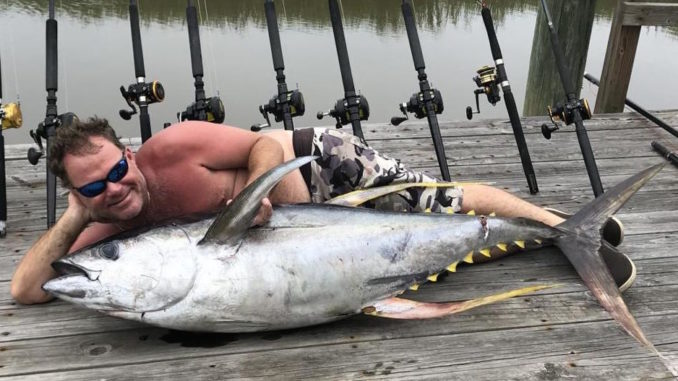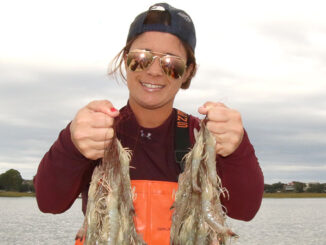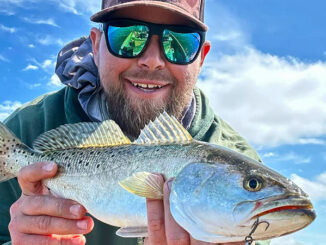
Yellowfin, once common in SC waters, are now a rare catch
Offshore anglers used to catch plenty of yellowfin tuna off the coast of the Palmetto State, but that has changed so dramatically that very few have been caught in the past decade. So it was a big surprise to a group of lowcountry anglers at the end of June when they hooked and landed a 110-pound yellowfin while trolling in about 200 feet of water.
The group was fishing aboard the Marshgrass, a 23-foot Sea Hunt owned and captained by Charleston’s Marsha Hass, who said they had caught king mackerel and a dolphin already, when all of a sudden, line started peeling off one of their Shimano TLD 20 reels. Jon Lucas grabbed the rod and began a fight that lasted about an hour.
And they didn’t even know what they had on the line until the fish was right at the boat because the fish never showed enough of itself for the crew to get a good look at it. It was also not fighting in a manner that tuna are known for.
“It was the shock of a lifetime. It didn’t do what a tuna is supposed to do. It’s supposed to go straight down and circle. The death circle. This thing kept running. I thought we had a marlin and since it wasn’t jumping, it must be hooked pretty bad in the bill,” said Hass, describing her thought process during the fight.
This wasn’t a run-of-the-mill yellowfin either. The 110-pound weight is after the fish was bled and gutted. When Hass announced the catch over the radio, she said she could almost hear other boats in the area giggling.
Before long, the Marshgrass crew had their lines back in the water, and they thought they hooked another yellowfin when line started screaming out once again. This time though, it was a 65-pound wahoo, which Hass said was a welcome catch that would have been the catch of the day if not for landing the yellowfin, which she called the catch of a decade.
While yellowfins are still caught regularly off the North Carolina coast, they’ve all but disappeared in South Carolina waters. The exact reason isn’t known, but Dr. Mitch Roffer, who founded Roffer’s Ocean Fishing Forecasting Service, said it’s likely due to two main reasons.
Overfishing for yellowfin off the coast of West Africa, where many yellowfin historically traveled to South Carolina waters from, is one cause.
But another major cause, said Roffer, is because of shifts in ocean currents which were once thought to be unchanging. The Antilles Current is one that many fisheries biologists say had once been responsible for bringing yellowfin to South Carolina’s waters, and it has shown lots of changes in the past 10 years, he said.
North Carolina anglers can reach the Gulf Stream, where yellowfin are commonly found, much easier and more quickly than South Carolina anglers.
But Roffer said this year shows some promise for South Carolina anglers seeking yellowfin.
“It could be a factor of not getting the supply of tuna coming off West Africa, probably due to overfishing there. So we’re not getting the supply coming across the Atlantic. And you have the additional aspect that this current is not pushing the water with the reduced amount of yellowfin into South Carolina. Some years it changes. We get a pulse of fish that comes across the current just right, and the yellowfin make it into the western side of the Gulf Stream, which is what I think is happening this year,” said Roffer.




